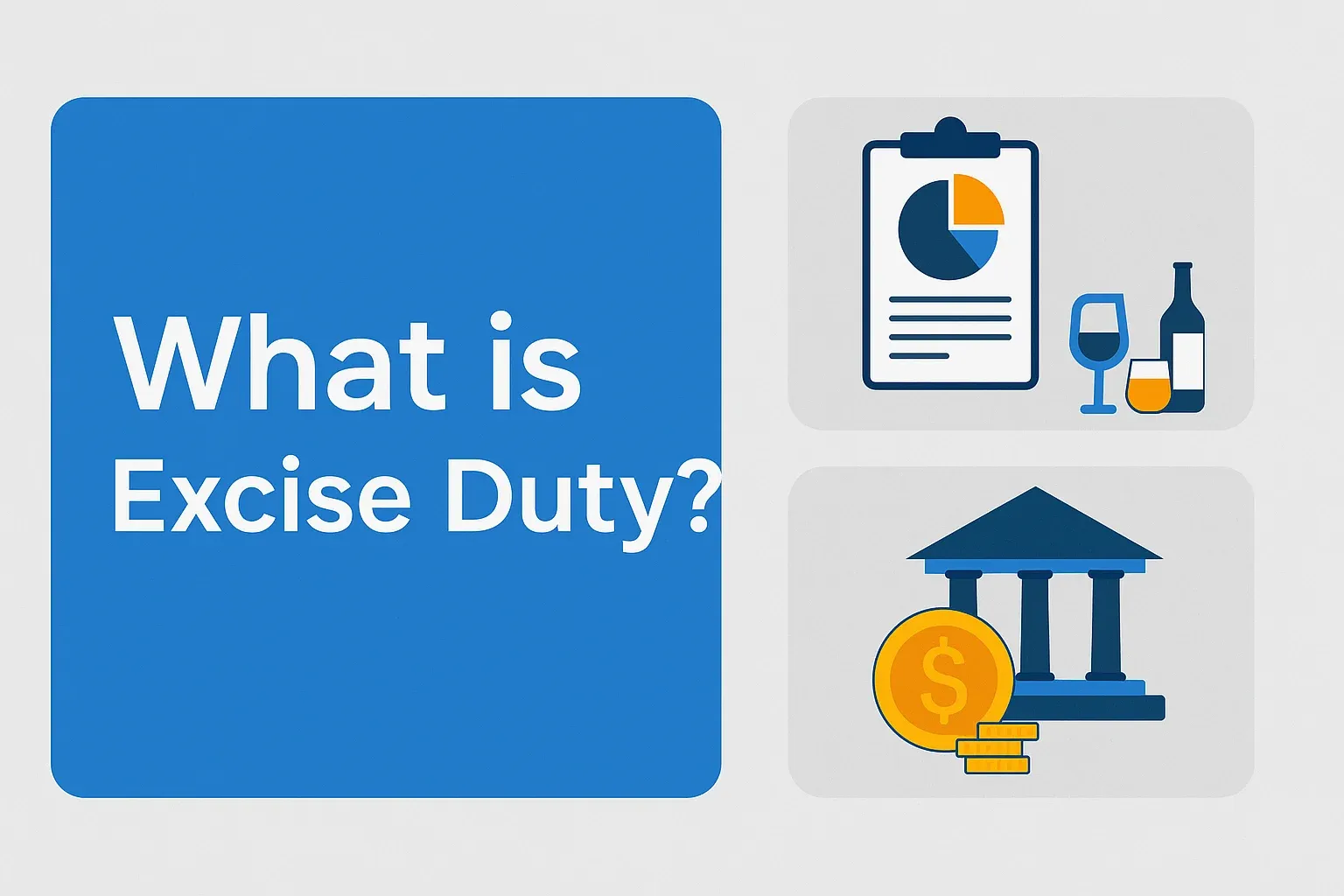What is Excise Duty? Meaning, Types, and Current Applicability (2025)

Excise duty is an important principle regarding the indirect tax system in India, particularly in industries that exist in the manufacturing business. At Eximpe, we believe that understanding Excise's duty is vital to compliance and strategies in the modern day of regulations.
What is Excise Duty?
Excise duty is an indirect tax paid on the manufacture or the production of goods in India. Excise duty is different from customs duty since customs duty is imposed on foreign goods while excise duty is paid on any products that are manufactured locally. The tax is levied on manufacturers or producers before goods are set for the market, and the burden is eventually imposed on consumers in the form of product pricing.
Types of Excise Duty
Excise duty in India is categorized into three main types, each serving a distinct purpose within the tax framework:
- Basic Excise Duty: It is levied under the Central Excise Act of 1944, and it is the basic excise duty on all the excisable commodities manufactured in India, other than salt. It provides the skeleton of excise yields.
- Excise Duty (Additional): It is levied on particular specified goods in addition to the basic excise duty. It is often a replacement for sale tax, and it divides itself between the central and the state level governments.
- Special Excise Duty: Applied on a few luxury/demerit goods, which include tobacco and pan masala, with the aim of discouraging consumption and additional revenue for the state.
Who Can Levy Excise Duty?
In India, only the central government has the authority to levy excise duty. The revenue generated is used for public welfare, infrastructure, and economic activities. Manufacturers or producers of excisable goods are responsible for paying excise duty at the time of production or removal of goods from the factory.
Is Excise Duty Still Applicable in India (2025)?
One of the most asked questions is: Is excise duty still applicable in India? It is both yes and no. Following the introduction of Goods and Services Tax (GST) in July 2017, excise duty also largely became a part of GST on most goods. Nevertheless, excise duty in India only continues on some products, including petroleum products (petrol, diesel), alcoholic drinks, and tobacco products. Such updates as Finance Bill 2025 have continued to sustain excise duty on these particular categories. The central government, time and again, changes rates and coverage through notifications and budget announcements to match policy objectives and fiscal requirements.
Key Takeaways for Businesses
- Excise duty is relevant if your business deals in petroleum, alcohol, tobacco, or other notified goods.
- Compliance involves registration, maintaining records, calculating liability, timely payment, and filing returns.
- Stay updated with government notifications, as rates and applicability can change with each budget cycle.
Conclusion
While excise duty in India has a narrower scope post-GST, it remains a critical tax for certain sectors. At Eximpe, we recommend that manufacturers and traders dealing with excisable goods stay vigilant about regulatory changes and ensure timely compliance to avoid penalties and disruptions.
Understanding what is excise duty, the types of excise duty, and its current applicability will help your business navigate India's evolving tax landscape with confidence.
FAQs
1. What is excise duty, and who pays it?
Excise duty is an indirect tax levied on goods manufactured within India, paid by the manufacturer or producer at the time of production or removal from the factory.
2. Is excise duty still applicable after GST?
Yes, excise duty is still applicable, but only on select products such as petroleum (petrol, diesel), alcoholic beverages, and tobacco; most other goods are now covered under GST.
3. What are the main types of excise duty in India?
The three main types are Basic Excise Duty, Additional (or Special) Excise Duty, and Special Excise Duty, each targeting different categories of goods.
4. Who is responsible for collecting excise duty in India?
Only the central government has the authority to levy and collect excise duty in India.
5. What are the current excise duty rates on petrol and diesel (2025)?
As of April 8, 2025, excise duty is set at ₹13 per litre for petrol and ₹10 per litre for diesel.
Simplify Your International Payments
Skip the complexity of traditional wire transfers with EximPe's smart payment solutions
Lightning Fast
Complete international transfers in hours, not days, with real-time tracking
Bank-Grade Security
Multi-layer encryption and compliance with international banking standards
Global Reach
Send payments to 180+ countries with competitive exchange rates
Why Choose EximPe for International Payments?
EximPe Support
How can we help you with your global payments today?
Stay Informed with EximPe News
Subscribe to our newsletter for the latest updates on import-export regulations, market trends, and exclusive insights from industry experts.